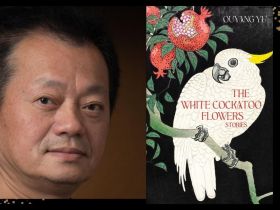Marriage is in decline in Australia. In her latest book, Clementine Ford argues that the institution is flawed and built upon historic inequality. I Don’t is Ford’s fourth publication and one, she argues, that pushes for new ways of ‘seeing and knowing’.
Focusing primarily on heteronormative marriage structures, specifically those presented to ‘white, middle-class women’ – with an acknowledgement that the institution itself helps to propagate certain power differentials, even within the context of same-sex marriage – Ford’s book is divided into four sections. It takes inspiration for its structure from the traditional wedding aphorism: something old, something new, something borrowed, something blue.
In Part One, ‘Something Old’ Ford explores the historical intersections of marriage in the West: walking the reader through its economic dynamics, and the use of the institution in the subjugation of women across different sociocultural time periods. Ford unpacks the layered backgrounds of collective stereotypes – such as the figure of the witch, the hysteric, the cat lady and the spinster – to reveal the misogyny that has been woven into the trite dismissal of these women who have refused to conform to the milestone of matrimonial life.
‘Something New’ tackles the dual concerns of class and capitalism. Here, Ford interrogates how the pressures wrought from the women’s rights movement caused a shift in cultural structural organisation, resulting in marriage encountering a transformation into a virtuous pillar of “civilised” society. This change placed women at the forefront of sustaining marital bonds, Ford suggests, further altering this already-metamorphosing landscape.
In Part Three, ‘Something Borrowed’, Ford pivots to examine marriage through the lens of romantic narratives, in which the institution becomes a symbol of conquest and safety. In the fairy tale denouement, women are promised an elusive “happy ever after”; this, Ford suggests, is another lie in the matrimonial myth marketed to women. Beneath the surface of this advert is a reinforcement, she argues, of male authority in the face of the demands of the feminist movement.
‘Something Blue’ confronts issues arising from post-nuptial life. The journey after “I do” is dissected, revealing the aftermath of the event itself. Ford examines the inequalities present in birth, domestic labour and parenthood – as well as a dissection of what men have been socialised to expect from marriage.
However, it is in the epilogue, ‘The Princess Saves Herself’, that Ford offers her most convincing writing. ‘It doesn’t have to be like this,’ she argues. Women can seek out alternatives to the narratives that have been pressed upon them as essential to their happiness. Marketed to women as a commodified product that is essential to their happiness, marriage is something that holds an empty promise, Ford contends – and suggests that many contemporary women have moved beyond the need for it.
Undoubtedly, I Don’t will solicit displeasure in those who perceive it as an attack upon an untouchable cultural institution, and upon its attendant values structures. Ford’s work here is undeniably meant to be provocative, in the etymological sense of the word: to challenge or call forth.
Read: Book review: Bee Miles, Rose Ellis
I Don’t builds an argument for questioning the institution of marriage for contemporary women. Ford meticulously analyses how the history of tying the knot has shaped women’s public and private roles, while also examining how marriage acts as a space in which structural inequalities can become strongly evidenced. Above all, she paints a picture of an alternative reality where women could thrive in freedom, unburdened by the constraints of traditional expectations.
I Don’t, Clementine Ford
Publisher: Allen & Unwin
ISBN: 9781761069666
Pages: 384pp
Publication Date: 31 October 2023
RRP: $34.99





